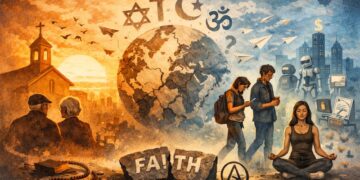Mathematics, often hailed as the “universal language,” has been humanity’s constant companion in its journey from caves to computers. Unlike subjects demanding costly laboratories or tools, mathematics requires little more than curiosity, paper, and pencil. It is the cheapest education. Yet, neglecting it is the costliest ignorance, for it denies individuals and nations alike the key to progress and innovation.
Why Mathematics Is the Cheapest Education
From the child in a rural classroom with a chalkboard to the university scholar with access to the latest technology, mathematics levels the playing field. Its universality lies in its simplicity—concepts of numbers, shapes, and logic remain the same whether taught under a tree or in a modern lecture hall. Abraham Lincoln, for instance, taught himself Euclidean geometry by candlelight, an effort that sharpened his logical mind for political life.
The “Prince of Mathematicians,” Carl Friedrich Gauss, famously declared: “Mathematics is the queen of the sciences.” Like a queen, it rules quietly, needing no throne but shaping every realm of knowledge.
The Costliest Ignorance
To ignore mathematics is to close doors. On a personal level, it weakens financial literacy and critical reasoning. At the societal level, it results in technological stagnation and economic decline. The genius of Srinivasa Ramanujan—who rose from poverty to reshape number theory—reminds us that brilliance can emerge anywhere, but without nurturing mathematical skills, millions of potential innovators are lost.
In today’s digital world, this ignorance becomes even more dangerous. Artificial intelligence, cybersecurity, and big data are built on mathematical algorithms. Without mathematics, one is left behind in a world that thrives on numbers.
The Past: Civilizations Shaped by Mathematics
History proves mathematics’ foundational role in human progress:
- Egyptians measured their lands with geometry after the Nile floods.
- Babylonians developed algebra and astronomical calculations.
- Indian scholars such as Aryabhata and Brahmagupta introduced zero and the decimal system.
- Islamic scholar Al-Khwarizmi, the father of algebra, passed knowledge that laid the foundation of the European Renaissance.
Every major civilization’s growth was rooted in mathematical innovation.
The Present: Mathematics Everywhere
From hospitals to stock exchanges, from skyscrapers to smartphones, mathematics silently powers the world. Probability models help doctors predict diseases, while calculus and statistics help businesses manage risks and maximize profits. Algorithms—mathematical recipes—drive the search engines, social media platforms, and artificial intelligence tools that shape daily life.
As Galileo Galilei observed: “Mathematics is the language in which God has written the universe.”
The Career Gateway
Far from being abstract, mathematics is a ticket to some of the fastest-growing careers today.
- Academia & Research: Professors, statisticians, and pure mathematicians.
- Data Science & AI: Machine learning engineers and analysts designing predictive models.
- Finance & Banking: Actuaries, quantitative traders, and risk managers.
- Technology & IT: Software engineers, cryptographers, and cybersecurity experts.
- Healthcare: Biostatisticians and epidemiologists interpreting genetic and medical data.
The U.S. Bureau of Labor Statistics projects 31% growth in math-related jobs between 2021 and 2031, far outpacing most other professions. In Asia and the Middle East, sectors like fintech, AI, and green technologies are expanding, creating vast opportunities for mathematics graduates.
Shakuntala Devi, India’s “Human Computer,” put it simply: “Without mathematics, there’s nothing you can do. Everything around you is mathematics. Everything around you is numbers.”
The Future: Passport to Innovation
Tomorrow’s breakthroughs—quantum computing, blockchain, biotechnology, and sustainable energy—will all emerge from mathematical models. The children who master algebra today will be tomorrow’s innovators of green energy, space exploration, and digital economies. As Bill Gates noted: “Mathematics nurtures your ability to think logically and creatively. That skill is indispensable in the digital world.”
Conclusion
Mathematics is the cheapest education—accessible to rich and poor alike. Yet ignoring it is the costliest error, for it shuts out opportunity, progress, and innovation. From Euclid to Ramanujan, from ancient geometry to artificial intelligence, mathematics has shaped civilization.
In the modern job market, mathematics is not merely a subject; it is the key to prosperity and survival. To embrace it is to embrace the future; to neglect it is to risk irrelevance.
The writer is a member of Faculty of Mathematics, Department of General Education SUC, Sharjah, UAE.
Email: reyaz56@gmail.com



